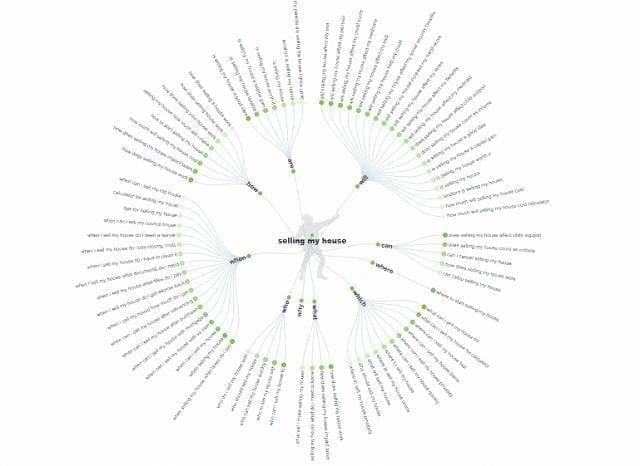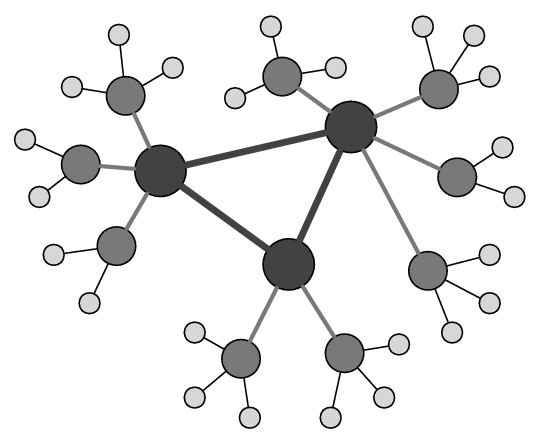Topical Authority in SEO? Does Word Count & Critical Mass Impact Rankings in 2020?
- 1 Why is content important to SEO?
- 2 The dangers of substandard content
- 3 How does Google view word count and does this impact rankings?
- 4 What is critical mass in SEO and do the number of pages matter?
- 5 What is Topical Authority?
- 6 Is Topical Authority the same as Domain Authority?
- 7 How does Topical Authority relate to word count and critical mass in SEO?
- 8 How to develop an SEO strategy around Topical Authority
- 9 Will a detailed article or cluster always outrank a short article?
- 10 Conclusion: How to improve rankings by building Topical Authority
- 11 References and further reading
If your website is to rank highly in search engines for specific keywords, topics or subjects, you will need to build something called Topical Authority.
I’ll let you into a secret, Topical Authority is probably one of the most important but least known aspects of SEO, so understanding this and being able to implement a content strategy that incorporated the elements above will do wonders for your SEO.
In this article, we will explore a range of topics related to Topical Authority, including those mentioned in the Table of Contents above.
Why is content important to SEO?
At its most basic level, SEO is built around content.
For a website to flourish in search engines, it needs content and copy (words), both of which are related but not necessarily the same.
This includes the content on a website and content published external to the website which results in backlinks.
Naturally, this means that the copy on your website needs to be of a superior standard. Hiring a low-cost copywriter may seem appealing, but it can backfire1 and we’ve seen this happen countless times with new SEO clients who come to us with doubts over their SEO existing strategy.
The dangers of substandard content
Whilst hiring a cheap copywriter may seem sensible, it is unlikely to help you achieve good Topical Authority and this will in turn negatively affect your SEO and ability to be found in search engines like Google.
The problem is that many writers prefer to work – and bill – according to a set word count.
This means, the more words, the more they earn, but the volume of content alone should never be the overriding priority in SEO.
How does Google view word count and does this impact rankings?
Word count has long sparked debate and contention among SEO professionals.
Ask a dozen experts about the optimum word count to boost rankings with Google and you’ll receive numerous disparate answers.
Some will say a page needs 400 words, 500 words, 1,000 words or more. Others will say word count isn’t important at all.
In this case, it is perhaps best to go straight to the horse’s mouth. John Mueller, the Webmaster Trends Analyst at Google, confirms:
“word count is not a factor that impacts rankings”2
Subject closed? Not quite.
Word count and volume of content can have a sizable impact on achieving Topical Authority and improving rankings.
Getting this balance right is at the heart of what we do at Opace and we’ve seen it have some amazing results for clients.
It’s just that the number of words and volume of content aren’t the only factors which impact SEO. Google conducts regular algorithm updates, which are used to promote, demote or penalise a site’s ranking on the search engine.

Much like The Matrix, Google’s algorithms are a form of a supercomputer that controls more of your day-to-day lives than we realise.
An early example of an algorithm update was Panda, which unrolled in February 2011 and targets:
- thin content
- plagiarism and duplicate content
- low-value content (e.g. of no value to reader, content that doesn’t answer the topic and is full of spelling and grammatical errors)
- non-verified content (e.g. not quoting sources)
- content which is full of advertising and affiliate links
Sites that take advantage of these shortcuts in an attempt to improve their SEO in 2020 are unlikely to get the results they want. Numerous, equally impactful algorithm updates have since followed.
Google Penguin rolled out in April 2012 addressed the issue of keyword stuffing. This occurs when a page uses keywords and key phrases repetitively to “game”/manipulate ranking results. Until this time this “black hat” approach had been successful (to some extent) but from this point onwards never has been effective as an approach.
2013’s Hummingbird, for example, placed further emphasis on content, with a heavy emphasis on content matching the user’s intent through semantic searches. 2015’s RankBrain completely changed the SEO game3. This algorithm, especially in conjunction with 2018’s E-A-T4 (aka Medic5) updates, remains highly relevant in 2020.
What is critical mass in SEO and do the number of pages matter?
The term critical mass has its origin in particle physics. Critical mass in SEO has a slightly less scientific definition.
In a nutshell, critical mass can be considered in terms of ‘words’ and ‘pages’, i.e. unique URLs which contain a collection of related words.

Critical mass in SEO involves packing your site with relevant inter-related content
It is the art of expressing what needs to be said within an appropriate word count. But imagine that your website is built around corporate branding. If the word count of your site totals 100,000 words, and just 500 of those words are related directly to ‘corporate branding’, do you think Google would consider the site to be an authority on the topic?
Ways in which some writers attempt to achieve critical mass and longer pieces of content are:
Good
- Researching keywords and competition to identify new content topics and gaps
- Producing and publishing content that will add value to the visitor
- Identifying which topics need to be explored and written about in detail to demonstrate expertise
- Architecting content correctly, e.g. a set of related but shorter interlinked pages may work much better than a single detailed page
Bad
- Surrounding keywords and search terms with irrelevant tangents in an attempt to bolster the volume of content
- Adding lengthy, unconnected deviations from the website’s core topic
- Repeating the same content in different ways or duplicating text
- Plagiarising other, more successful websites
- Writing in a long-winded fashion or adding ‘fluff’ to create additional words
Clearly, getting this right can have a positive impact on SEO but getting it wrong can have an equally negative affect.
Emphasising quantity over quality is a common SEO mistake. The notion that more words + more pages = better SEO, is outdated at best.
Google will place greater emphasis on E-A-T metrics such as Expertise, Authority and Trust, rather than the simple magnitude of content.
What about long-form content?
More words will not necessarily impact rankings for the better, especially in 2020.
Don’t get me wrong, creating detailed long-form content such as a whitepaper can be one of the best SEO strategies you can apply to gain Topical Authority and exposure in search engines but ONLY if done correctly.
The key to making this work is having a well thought out strategy and creating high-quality relevant content that will demonstrate Expertise, Authority and Trust.
What about thin content?
Long-form content is one common term used in SEO, but thin content is another. In some ways, thin content is the polar complete opposite to long-form content as it describes a page which provides little value to the user and typically contains zero or minimal content6.
One reason people add thin content is to try and achieve critical mass, where they mistakenly believe more pages will give them more authority.
On the other hand, there are lots of innocent reasons why thin content may be added, sometimes these are the result of CMS or platform being used. WordPress, for example, can automatically create pages that could be considered as thin content, such as archives, tags and categories. It’s arguable as to whether these pages should be set to no-index to discourage indexing in Google but this is another topic.
On the plus side, Google can spot thin content without difficulty, but it is usually clever enough to spot whether this has been done intentionally or not.
Topical Authority can be considered the same as demonstrating Expertise.
Remember 2013’s Hummingbird and 2018’s E-A-T (Medic) updates mentioned above, Topical Authority is one of the key elements of these updates.
With Hummingbird, Google started to really understand the user’s intent when carrying out a keyword search. From this point onwards, we started to see a greater emphasis on Google ranking answers which demonstrated expertise.
Hence, sites with good Topical Authority would tend to rank better in Google and generate more organic traffic.
Domain Authority (or DA) is a far more common and understood metric, which we have explored here along with other metrics like Trust Flow and Alexa Rank.
Many SEO tools and specialists will talk in terms of Domain Authority to describe how much “authority” your site has as a whole, but this is different to Topical Authority.
If we think about cause and effect, Topical Authority is one of the key drivers (or causes) in achieving a good Domain Authority, but this is along with other factors like domain age, backlinks and so on.
Where the two relate, is that having expert on-site content along with high-quality backlinks pointing to your site, usually means you will have a good Domain Authority and Topical Authority. Therefore, it’s usually (but not always) the case that your site will also be ranking well.
It’s well known that the simplest formula for SEO (when done correctly) is keywords + links = good SEO, but Topical Authority adds another dimension to this equation.
Very simply, to gain Topical Authority, a website needs to have an adequate amount of meaningful content to demonstrate expertise.
Given the level of competition and expertise already available online, this usually means saying something new, in a greater level of detail than explained before.
Hence more words and more pages (critical mass) relating to a topic.
The caveat again is that the content must add value, be high-quality and relevant.
Forget about keywords and think about topics
It sounds obvious but think in terms of topics.
Most SEO specialists will suggest starting with keywords. This is all well and good if thinking about a page in isolation, but to build Topical Authority you need to demonstrate expertise.
Quite often, this isn’t possible with a single standalone page.
So, think about search intent and topic opportunities:
- Make a list of potential topic opportunities
- Can each topic be broken down into related sub-topics?
- Research keywords and think about how these fit with your topics – don’t forget about longtail keywords as these can provide some of your quickest wins
- Do those sub-topics all belong one page as sections or sub-headings, or are they separate pages that interlink with one another
- Research competition to see what is already being said online about the topic and how you can add additional value
- Consider what your website already says and perhaps carry out a gap analysis
- Consider how long each new section and/or page should be to demonstrate expertise
Once you are done, you should be able to draft a mini sitemap for the topic.

Consider search intent when planning your topic
What are Topic Clusters?
The above image shows an illustration of a Topic Cluster around selling a house.
Topic Clusters are exactly that, a cluster or grouping of related sub-topics, which in web design or SEO terms would be a collection of related interlinked pages usually connected by a Pillar Page7.
Clusters are a great way to build authority – and impact ranking accordingly – without overwhelming a visitor to your site. The data is dispensed in smaller, bite-sized chunks. This is an ideal SEO strategy for 2020.
Use the Hub and Spokes strategy
Here at Opace, we’ve taken the notion of Topic Clusters and developed a strategy which we call ‘Hub and Spoke’.
We’ve been implementing this strategy for clients for several years as a mechanism to help them build a meaningful critical mass of content and Topical Authority.
So, what is meant by Hub and Spoke?
Generally, the Hub would be the long-form content, i.e. a master page so to speak with detailed in-depth content on a topic which demonstrates E-A-T. In Topic Cluster speak, this is a Pillar Page.
It’s easy to think about a Hub and Spoke strategy in terms of related topics/keywords and levels of competition.
The overarching topic will usually have the highest competition and keyword search volume.
Then as we consider individual sub-topics (generally associated with less competitive longer-tail keywords) these will be Spokes.
It’s good practice to interlink the Hub and Spokes but to do this we need content. This means the Hub will often have multiple sections which allow us to briefly talk about and link to each Spoke.
As a result, these Hubs virtually always have a greater word count.
What’s even better is that often topics (or Topic Clusters) can be interlinked with each other using a Hub and Spoke strategy.

Topic Clusters can be interlinked within a Hub and Spoke strategy
For example, this very article is a Hub and a Spoke, interlinked and nested within other Hubs and Spokes, i.e.
- We have defined a Hub (or Topic Cluster) called How to Improve Google Rankings in 2020
- This article (Topical Authority in SEO? Does Word Count & Critical Mass Impact Rankings in 2020?) is one of our Spokes
- At the same time, this Spoke is also a Hub linking to other pages related to Topical Authority, such as
Hopefully, now, it’s all starting to come together.
Strategies such as Topic Clusters and Hub and Spokes can be pivotal to achieving Topical Authority and this often requires a critical mass of content.
Sorry to bore you with this, but the caveat again is that the content must add value, be high-quality and relevant.
Will a detailed article or cluster always outrank a short article?
Not necessarily. You will rarely do your website any harm by providing as much information as possible as this will strengthen your site’s claim to provide expertise, authoritativeness and trustworthiness.
Long-form content has a history of outranking shorter copy8 as a lengthier word count often provides more opportunity to show expertise.
This is especially the case if you back up your data with high-authority backlinks. It suggests that you have compiled dedicated research and your site can be trusted, which will appeal to Google’s algorithms and impact your ranking accordingly.
This is why Wikipedia ranks so well in Google.
All that said, you will occasionally see a short article or page outrank longer in-depth content.
We normally see this where the site in question has accrued a large amount of Domain Authority, perhaps because they have been around for a long time and attracted high-quality backlinks, engagement and social shares from users. In cases like this, the overall DA outweighs the Topical Authority and Google decides to rank them above sites which show greater levels of expertise and in-depth content.

High word counts are fine, as long as you back up the copy with appropriate expertise.
We’ve said it before, but a greater volume of content does not always equal superior SEO.
Sometimes, less is more. Some readers have short attention spans9 and content with a lower volume of words is more suitable.
Twitter, a communication platform built around brevity, is popular for a reason.
As well as the reasons mentioned above, there could be several other reasons why lengthy articles are outranked by shorter competitors. These include:
- Visitors growing overwhelmed by the sheer amount of information
- The site loading slowly due to the high volume of copy
- Visual learners prefer images and videos to walls of text
- The density of copy being illegible on a small screen, such as a smartphone
- The high word counts lead to a range of unrelated tangents
- Topical Authority in SEO has not been reached
If you have increased the volume of content on your site but it’s not had the desired impact, consider why.
Impact your ranking by gaining Topical Authority. This means increasing your word count if necessary and boosting the number of pages (critical mass) where it makes sense to do so.
More importantly, though, you must marry this quantity of content with relevance and quality.
Review your site and assess which topics look thin. Bolster these with informative and trustworthy content.
If you need further help with this, Opace is always on-hand to assist with your SEO. Feel free to get in touch and see how we can help.
References and further reading
- inkhouse.org.uk/cheap-copywriter
- seroundtable.com/google-word-count-is-not-a-ranking-factor-27994.html
- moz.com/learn/SEO/google-rankbrain
- SEO-plus.co.uk/google-e-a-t-algorithm-update
- exposureninja.com/blog/what-is-medic-algorithm-update
- yoast.com/what-is-thin-content
- blog.hubspot.com
- impactbnd.com/blog/long-form-content-vs.-short-form-content
- forbes.com/pictures/ekig45j/write-short-pithy-posts
Image Credits – Pexels/MarkusSpiske; Pexels.com/JEShoots
« Back to Glossary Index




